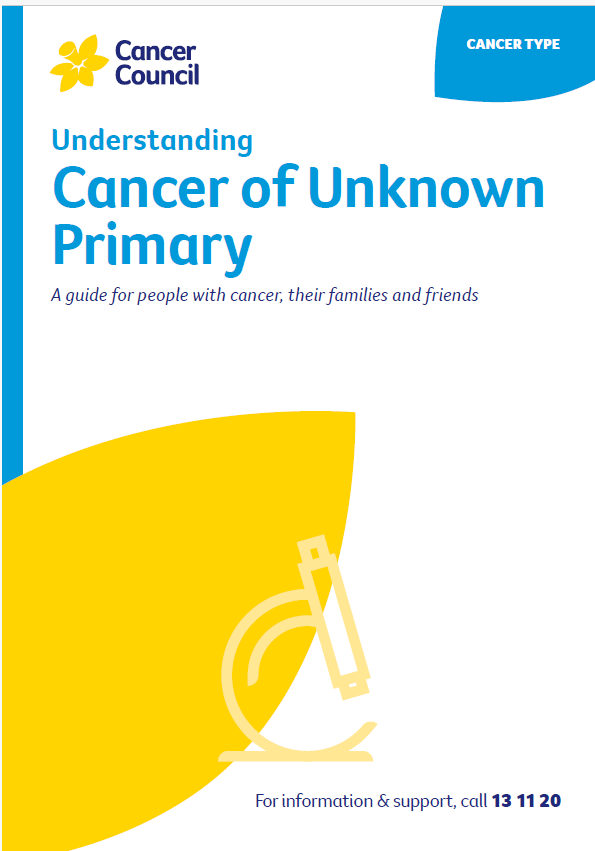- Home
- Cancer of unknown primary (CUP)
- Treatment
- Hormone therapy
Hormone therapy for CUP
Hormones are substances that occur naturally in the body. Some cancers depend on hormones to grow (e.g. oestrogen may help breast cancer grow). Hormone therapy aims to lower the amount of hormones in the body in order to slow or stop the cancer’s growth. The treatment may be given as tablets you swallow or injections. If tests show that the CUP may have started as a cancer that is hormone dependent, your doctor might suggest hormone therapy. It is sometimes used with other treatments.
For more on this, see our general section on Hormone therapy.
Side effects of hormone therapy
The side effects of hormone therapy will vary depending on the hormones you are given.
Common side effects include:
- tiredness
- nausea
- appetite changes
- weight gain
- mood changes
- pain in the joints
- thinning of the bones (osteoporosis)
- hot flushes
- erection problems.
It is important to tell your treatment team about any side effects you have from drug therapies. Side effects can be better managed when reported early. You may be given medicine to prevent or reduce side effects. Sometimes, your doctor may delay treatment or reduce the dose to lessen side effects.
You may be able to get other drugs to treat CUP through clinical trials. Ask your doctor about recent developments and whether a clinical trial may be an option for you.
→ READ MORE: Targeted and immunotherapy for CUP
Podcast: Treatment Options for Advanced Cancer
Listen to more of our podcast for people affected by advanced cancer
More resources
Prof Chris Karapetis, Network Clinical Director (Cancer Services), Southern Adelaide Local Health Network, Head, Department of Medical Oncology, and Director, Clinical Research in Medical Oncology, Flinders Medical Centre and Flinders University, SA (Clinical review); Dr Amey Aurangabadkar, Radiologist, Illawarra Radiology Group, NSW; Clare Brophy, Consumer; Prof Katherine Clark, Clinical Director of Palliative Care, NSLHD Supportive and Palliative Care Network, Northern Sydney Cancer Centre, Royal North Shore Hospital, NSW; Prof Wendy Cooper, Senior Staff Specialist, Tissue Pathology and Diagnostic Oncology, NSW Health Pathology, Royal Prince Alfred Hospital, NSW; A/Prof Richard Gallagher, Head and Neck Surgeon, Director of Cancer Services and Head and Neck Cancer Services, St Vincent’s Health Network, NSW; Dr Chloe Georgiou, Oncology Research Fellow, Australian Rare Cancer Portal, and Oncology Trials Fellow, Bendigo Health Cancer Centre, VIC; Dr Susan Harden, Radiation Oncologist, Peter MacCallum Cancer Centre, VIC; Justin Hargreaves, Medical Oncology Nurse Practitioner, Bendigo Health Cancer Centre, VIC; Dr Laura Kirsten, Principal Clinical Psychologist, Nepean Cancer Care Centre, NSW; Prof Linda Mileshkin, Medical Oncologist, Peter MacCallum Cancer Centre, VIC; Caitriona Nienaber, 13 11 20 Consultant, Cancer Council WA.
View the Cancer Council NSW editorial policy.
View all publications or call 13 11 20 for free printed copies.

